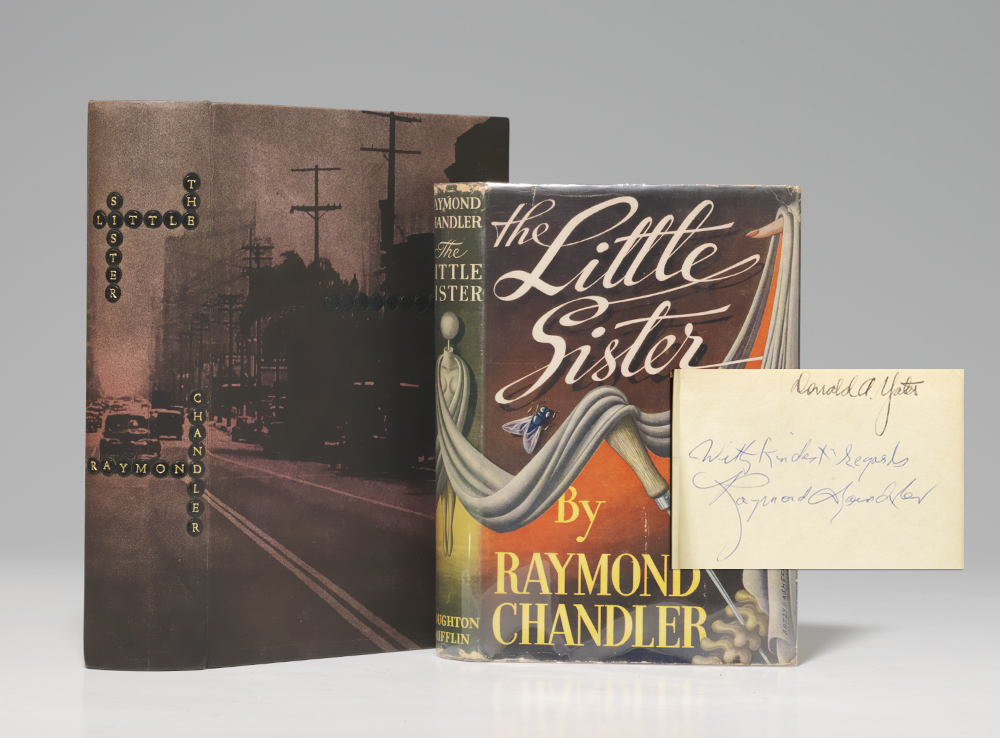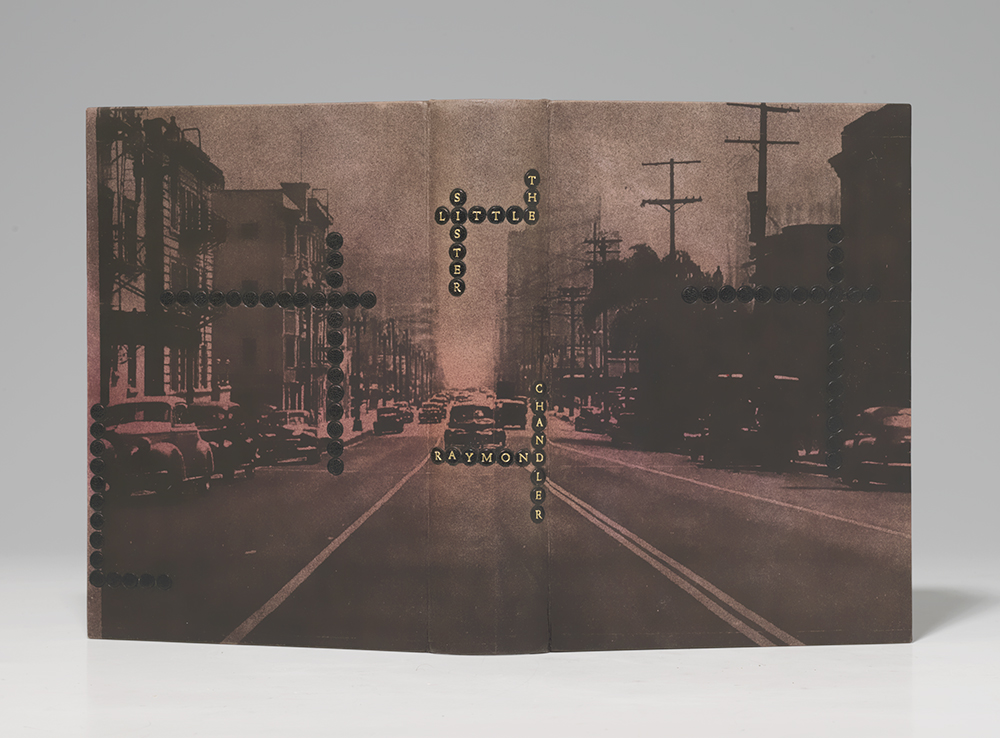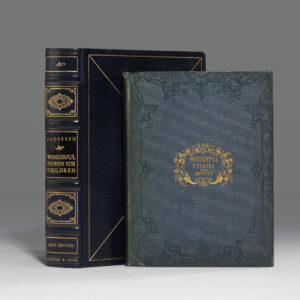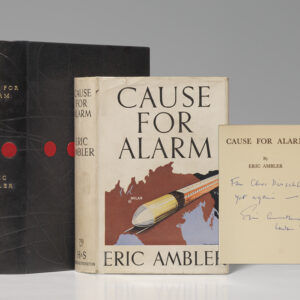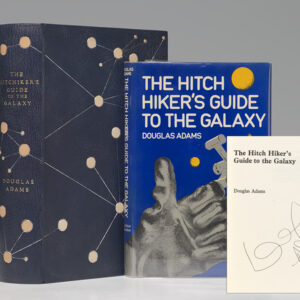Description
“WITH KINDEST REGARDS RAYMOND CHANDLER”: EXCEEDINGLY RARE PRESENTATION FIRST AMERICAN EDITION OF CHANDLER’S THE LITTLE SISTER, ISSUED THE SAME YEAR AS THE BRITISH EDITION, WARMLY INSCRIBED BY RAYMOND CHANDLER TO LEADING CHANDLER LITERARY SCHOLAR
CHANDLER, Raymond. The Little Sister. Boston: Houghton Mifflin, 1949. Octavo, original full orange cloth, original dust jacket.
First American edition, first state, of Chandler’s fifth hard-boiled novel featuring his legendary private eye, Philip Marlow, issued three months after the British edition, an extremely rare presentation/association copy inscribed by Chandler to preeminent literary scholar Dr. Donald A. Yates, “With kindest regards Raymond Chandler.” Above Chandler’s inscription is the owner signature of Yates, who corresponded with Chandler and wrote extensively on his works. A splendid inscribed copy in rarely found dust jacket. One of the rarest of Chandler titles to find inscribed.
This rare presentation copy is inscribed by Chandler to Fulbright scholar Donald A. Yates, the “pioneering critic of Latin American fiction” and author of numerous works on detective fiction (Lockhart, Latin American Mystery Writers, 105). Chandler, who once said “I look on mysteries as writing, the same standard as from any novel,” joins ranks with “Ernest Hemingway, Theodore Dreiser, Ring Lardner, Sherwood Anderson, and even Walt Whitman” (Lockhart, xv) in his sense of the detective story as “the earliest and only form of popular literature in which is expressed some sense of the poetry of modern life” (MacShane, Life of Raymond Chandler, 47). In his essay, “The Simple Art of Murder,” he observed that authors of detective novels write “of a world in which gangsters can rule nations and almost rule cities… it is not a fragrant world, but it is the world you live in.” To Chandler, whose novels helped define the hard-boiled novel and film noir, crime stories “belong ‘to a world gone wrong,’ but ‘down these mean streets a man must go who is himself not mean'” (Bruccoli & Layman, 65).
In speaking of Chandler’s The Little Sister, novelist Robert Parker said: “I learned to write from Raymond Chandler… The second paragraph of The Little Sister reads this way: ‘It was one of those clear, bright summer mornings we get in the early spring in California before the high fog sets in. The rains are over. The hills are still green and in the valley across the Hollywood Hills you can see snow on the high mountains. The fur stores are advertising their annual sales. The call houses that specialize in sixteen-year-old virgins are doing a land-office business. And in Beverly Hills the jacaranda trees are beginning to bloom…’ It is quintessential Chandler. The careful juxtaposition of things gives us both a visual and a moral sense of place. We are reminded of the green land where promise once abounded, and we are reminded of what’s become of it. We are also given a clear image of the kind of man we are meeting” (Reilly, 286). Chandler’s novel was the basis for the 1969 film titled Marlowe, starring James Garner. First state, in full orange cloth. With scarce original dust jacket designed by surrealist artist and illustrator Boris Artzybasheff. Preceded the same year by the London edition. Bruccoli A8.2.a. Reilly, 284. Hubin II, Vol.I:152..Barzun & Taylor 735. Chandler and Dr. Donald A. Yates, literary scholar and professor emeritus of Spanish-American Literature at Michigan State University, frequently corresponded on the subject of detective fiction. Yates, who had other inscribed copies of Chandler’s novels in his library, is also the preeminent translator of works by Jorge Luis Borges. Yates once “maintained that ‘detective fiction is a luxury destined in all likelihood to appeal to a relatively sophisticated reading public. It is essentially a type of literature that avoids direct contact with reality.” A fellow scholar on detective fiction has observed, however, that “what Yates in fact hit upon was the definition of the everyday reality of Spanish American society” (Lockhart, xv-xvi). Presentation copies inscribed by Chandler are exceedingly rare. With Yates’ owner signature above Chandler’s inscription. Bookseller ticket.
Book fine; lightest edge-wear to spine extremities of bright unrestored dust jacket. An exceptional about-fine inscribed copy.
